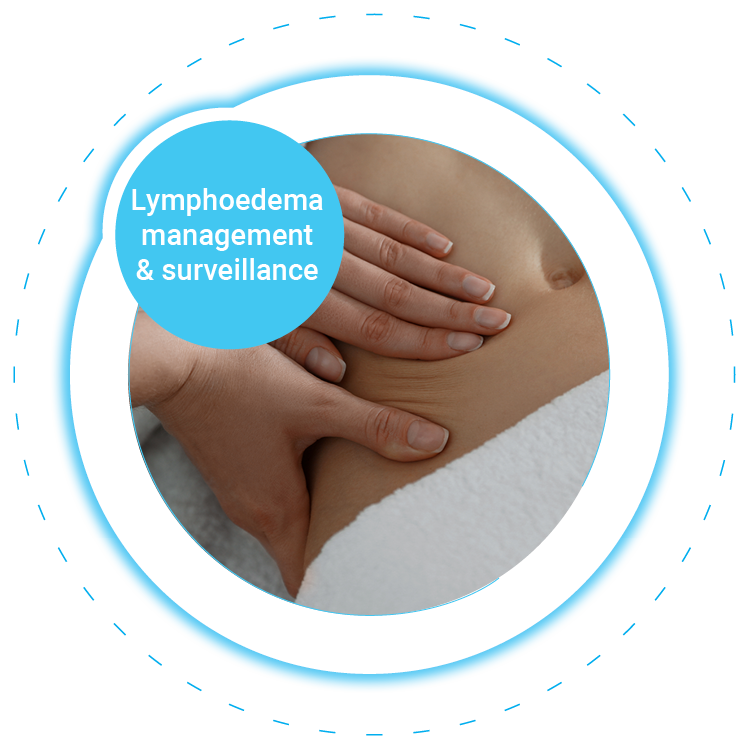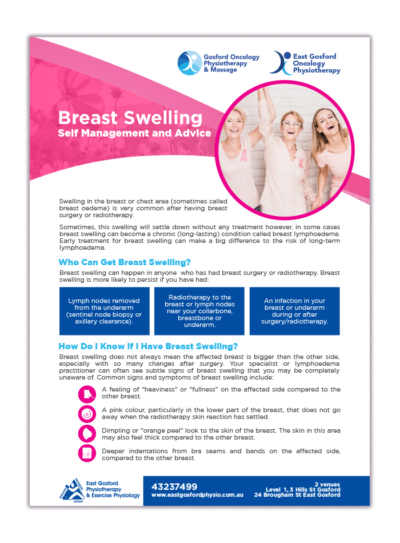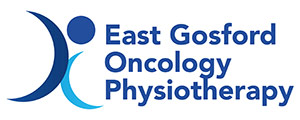
24 Brougham Street, East Gosford
Call (02) 4323 7499
NEW LOCATION

3 Hills Street, Gosford
(upstairs of Dr Sharon Laura rooms)
Call (02) 4323 7499
East Gosford Oncology Physiotherapy Program for Breast Cancer Rehabilitation and Lymphoedema Management
East Gosford Oncology Physiotherapy Program for Breast Cancer Rehabilitation and Lymphoedema Management is a comprehensive program led by Lindy Radmann, a Senior Physiotherapist and Australasian Lymphology Association Level 2 Accredited Lymphoedema Practitioner, who has completed training in both Australia and The Foldi Institute in Germany.
We have rooms in East Gosford at East Gosford Oncology Physiotherapy at 24 Brougham St and in Gosford Oncology Physiotherapy and Massage upstairs of Dr Sharon Laura’s rooms at 3 Hills St Gosford.
All bookings are made through East Gosford Oncology Physiotherapy on (02) 4323 7499 and you will be advised on the best venue to make an appointment.
Our Team
Our team of highly trained female Oncology Physiotherapists and Accredited Lymphoedema Therapists will provide you with a comprehensive assessment and consider all aspect of your breast cancer rehabilitation and develop a pathway for treatment, management, and maintenance.
This program is a comprehensive protocol of early assessment, monitoring, treatment, and prevention of the side effects of breast cancer treatment.
Our program is designed to pick up “any issues” as early as possible especially side effects like shoulder pain or stiffness, swelling or lymphoedema, cording and seromas.
This allows our oncology physios to advise you on early treatment strategies and prevent the complications that can creep up on you.
This is all part of or Strong Survivor program, as we help you to become a Strong Survivor.
Our program combines with the SOZO early surveillance protocol and assesses you at 2-5 weeks after surgery to monitor for and prevent any side effects like shoulder stiffness, breast swelling or cording.
How can East Gosford Oncology Physiotherapy help after breast cancer treatment?
1. Lymphoedema management and surveillance.
After breast cancer treatment there is a 5-20 % risk of developing lymphoedema of the arm, breast or chest wall. Your level of risk is based on the type of cancer you have and what treatment you have received.
Onset is usually within the first two years after treatment, however, there remains a lifetime risk of lymphoedema development.
East Gosford Oncology Physiotherapy applies this early education and monitoring protocol and this reduces the risk of developing chronic Lymphoedema.
This model is known as the “Prospective surveillance and early Intervention model of care” and is based on the latest research in management of breast cancer related Lymphoedema. (Ridner S. et. al. 2022)
Your doctor will advise you to commence this program prior to surgery.
East Gosford Oncology Physiotherapy Program for Breast Cancer Rehabilitation and Lymphoedema management. – Our early intervention model of care.
East Gosford Oncology Physiotherapy can offer you access to this early detection of lymphoedema protocol with our SOZO program.
SOZO or Bioimpedance Spectroscopy measures the volume of the fluid outside your cells by passing a small harmless current through your body (you won’t feel this at all)
You are required to stand on the a SOZO machine plate and hold on to the grips for a few minutes to provide a recording of your fluid movement. A simple harmless and pain free procedure which we allow about 15 minutes to perform. We have a cost-effective plan to help you manage this program so please contract us to make an appointment once your breast surgeon has advised this.
The Early Intervention Model advises the initial SOZO measurement to be recorded before treatment. Don’t worry if this didn’t occur before your surgery, we just start the measurements after your surgery at our2- 5 week follow up.
We use this as a baseline, and monitor you regularly for the first two years (every three to six months depending on your risk level for developing lymphoedema). Based on these readings we are able to implement early intervention and a prevention strategy, if required.
How do we treat Lymphoedema if it is detected?
Lymphoedema treatment is known in Australia as Complex Decongestive Therapy (CDT)
Our Breast Cancer physiotherapists at East Gosford Oncology Physiotherapy are Registered Lymphoedema practitioners and are specially trained in lymphoedema management and accredited by the ALA (Australasian Lymphology Association)
Lymphoedema management with Complex Decongestive Therapy may include the following components:
-
- Manual Lymphatic Drainage (MLD)
-
- Self-lymphatic drainage and education
-
- Compression therapy where necessary- Bandaging or wraps to reduce swelling
-
- Education regarding risk management
-
- Exercise to enhance lymphatic function.
-
- Travel sleeves or socks if needed.
-
- Ongoing Surveillance and monitoring
For more information, please go to the lymphoedema section of our website or contact us on 43237499 to make an appointment with one of our Lymphoedema physiotherapists.
2. Cording (axillary web syndrome) management
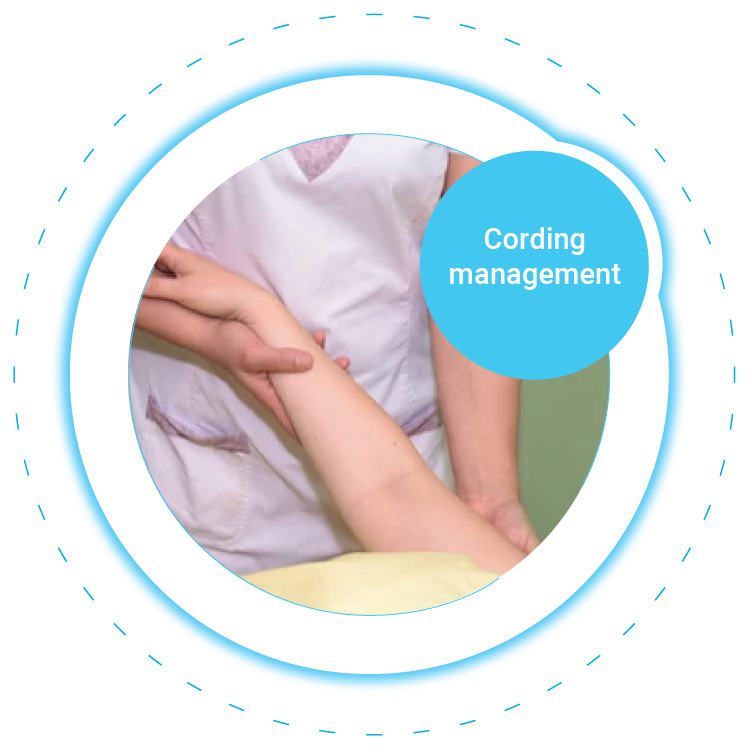
The East Gosford Oncology Physiotherapy Program for Breast Cancer Rehabilitation and Lymphoedema management will assess for and manage cording as required.
Cording or Axillary web syndrome can develop after surgery for breast cancer.
Cording occurs when a cord like structures develops in the axilla (armpit), arm and or breast wall.
This can be caused by hardening of lymph vessels and can feel like a tight cord is running from your armpit and down the inner arm to your palm.
The reason for developing cording is unclear, but one theory is that it relates to healing and scarring of the lymphatic vessels damaged during surgery.
Cording responds well to treatment by Lymphoedema Physiotherapists and usually improves with soft tissue techniques , laser therapy , gentle stretches and pain management.
Our oncology physios who are specially trained in breast cancer rehabilitation will help you manage cording as part of your rehabilitation program.
3. Deconditioning or fatigue following Breast cancer treatment
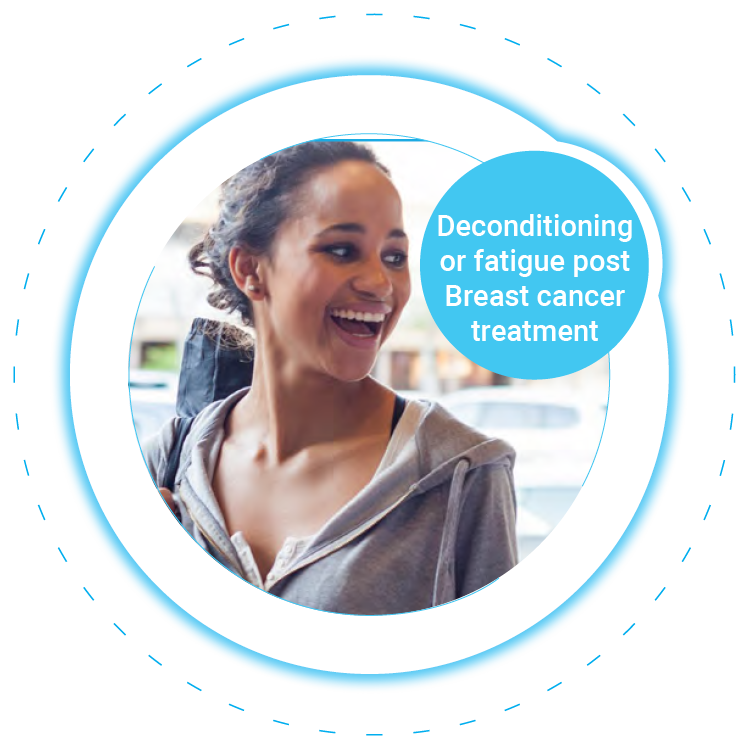
Many people experience fatigue and feel deconditioned after going through treatment for breast cancer.
Our experienced Oncology Physiotherapists will advise you regarding the best way to rebuild your strength and help you return to doing the things you enjoy.
Exercise has been clearly shown to be beneficial in helping women with their fatigue and deconditioning following breast cancer. Many people feel they are unable to exercise through fear of “doing the wrong thing” or not knowing what they can do safely. At East Gosford Oncology Physiotherapy we can assess your individual situation and guide and support you through safe and effective exercise before, during or after your cancer treatment.
Our Back on Track program is designed to get you back on track after breast cancer treatment and is an individualised exercise program which you do with your physio in our gym, and we show you how to exercise safely to manage your fatigue. We will set you up with an app on your phone or paper handouts, so you can easily remember the exercises at home.
Surprisingly, gentle controlled exercise can improve your fatigue and quality of life and we will ensure you can see this benefit with a safe home program.
4. Musculoskeletal Issues – help with neck and shoulder pain
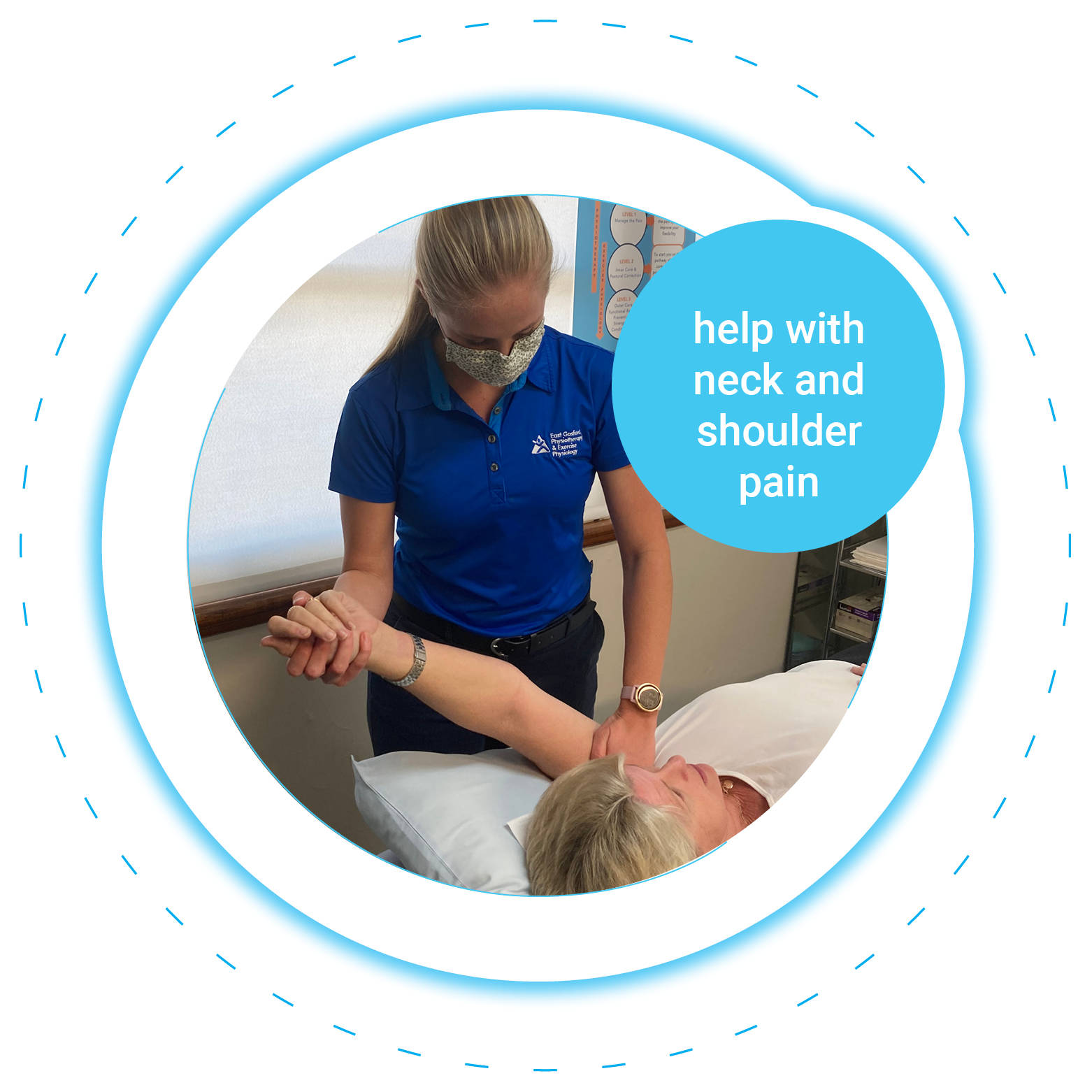
After breast cancer treatment it is possible to develop shoulder or neck pain caused by trauma of the surgery, scar tissue, swelling or changes in your posture. It is common to develop stiffness and weakness in the shoulder that can lead to impingement of structures in the shoulder that can cause bursitis and frozen shoulder.
Our highly trained physiotherapists can help you will any neck, chest or shoulder pain or stiffness which can result from breast cancer treatment.
Our physiotherapists will ensure you are using your shoulder correctly to prevent bursitis and advise on posture to prevent neck pain. We apply all our physio skills and techniques to get you moving pain free and normally again.
So don’t put up with pain after breast cancer treatment, talk to our Oncology physios about how we can help.
5. Seroma Management
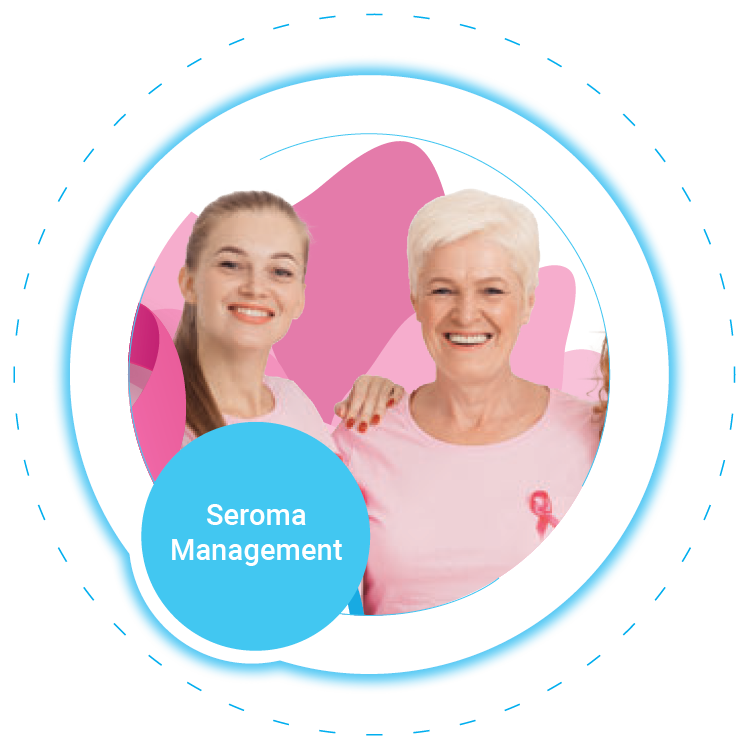
The East Gosford Oncology Physiotherapy Program for Breast Cancer Rehabilitation and Lymphoedema management will assess for and manage seromas as required.
Seromas are areas of fluid collection in the breast or axilla which sometimes occur following breast cancer surgery or radiation. They usually occur immediately after surgery and often get resorbed naturally back into the body over time. If a seroma becomes too large or painful, it can be drained, and you doctor will advise you about this.
East Gosford Oncology Physiotherapy will help manage seromas with gentle manual lymphatic drainage, taping and education about compression bras or inserts.
Please make an appointment with our breast cancer oncology physiotherapist to have your seroma managed. BOOK HERE.



